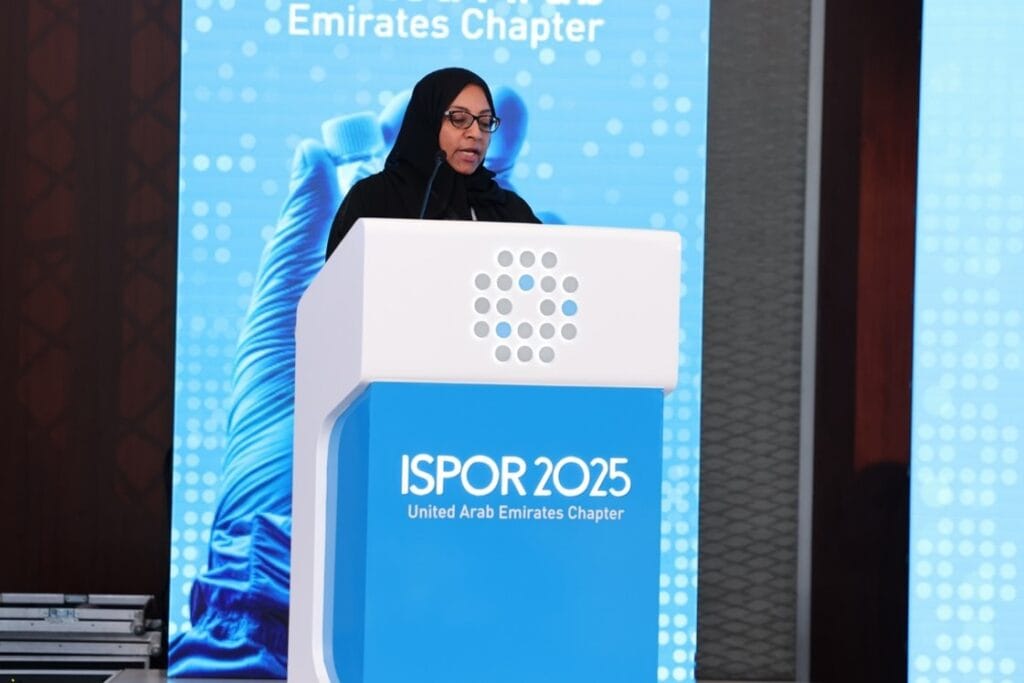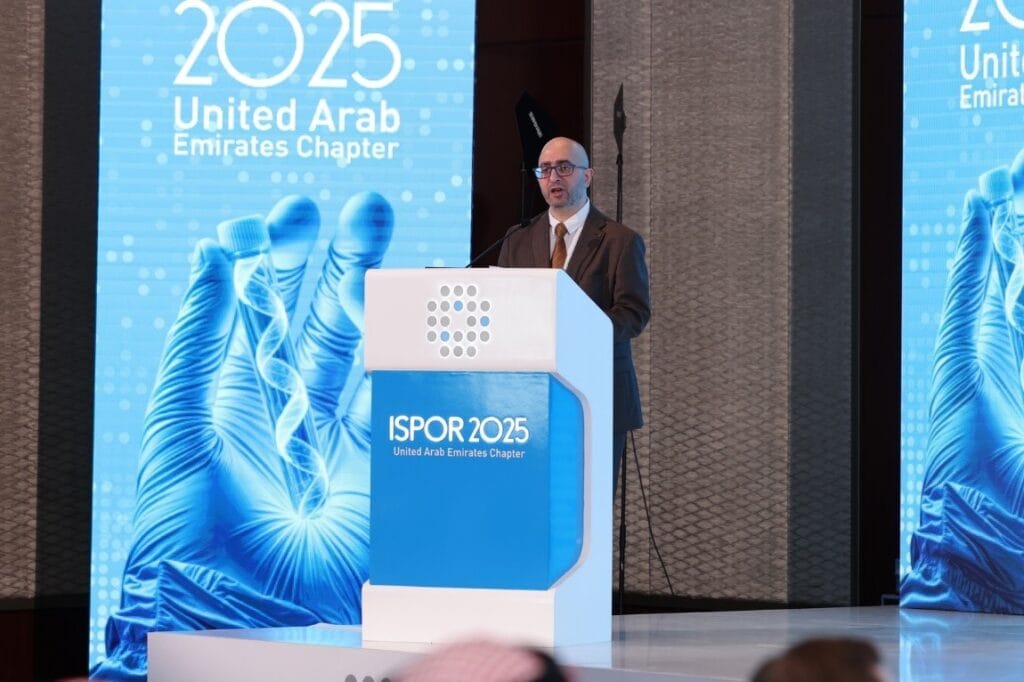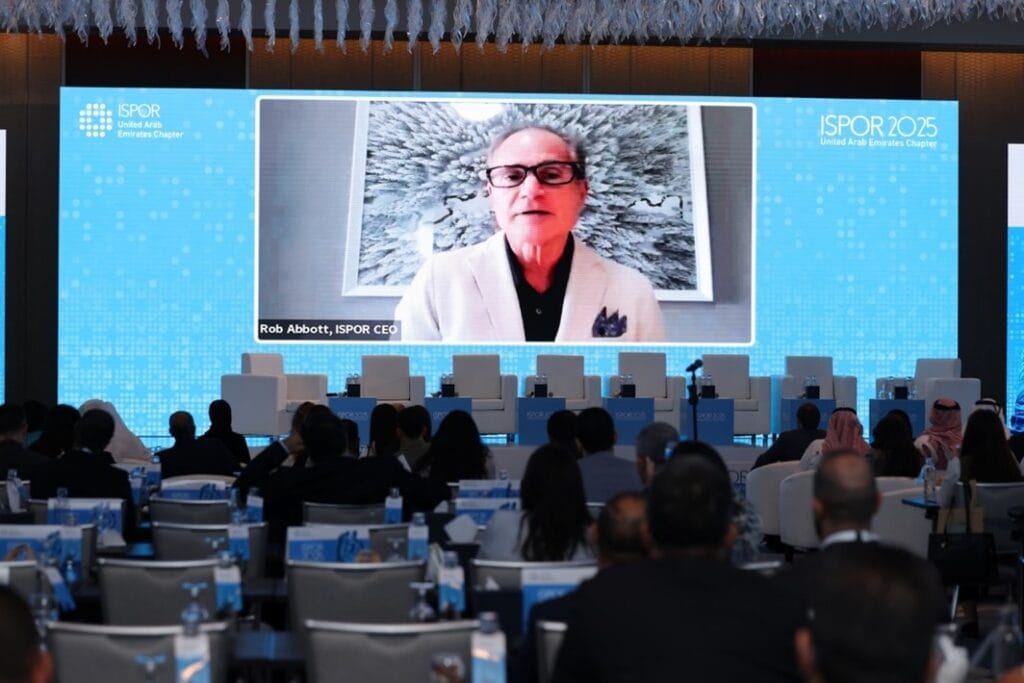Menu
ISPOR UAE 2025 Conference Brings Global Leaders Together to Shape the Future of Healthcare Policy in the MENA Region
The ISPOR UAE 2025 Conference, held in Abu Dhabi on May 23–24, 2025, concluded with remarkable success, bringing together more than 500 participants, nearly 100 experts, and representatives from over 20 countries around the world.
A Pivotal Event in Health Economics and Outcomes Research
In collaboration with leading government entities, the two-day conference featured a rich and diverse scientific program that included over 50 scientific sessions, workshops, and key discussions. The event attracted more than 50 representatives from top healthcare institutions and stakeholders, solidifying its position as a primary platform for shaping future healthcare policies in the region.
Advancing Evidence-Based Healthcare in the Region
The conference played a vital role in promoting active dialogue on value-based healthcare, with a focus on incorporating patient and stakeholder perspectives to support equitable and effective health solutions. It also emphasized the crucial role of HEOR (Health Economics and Outcomes Research) experts in shaping both regional and global health policies. Additionally, it showcased advancements in digital health technologies—including artificial intelligence and data analytics—as primary tools for translating research outcomes into tangible real-world impact.
Leadership Speeches

Prof. Nadia Al Mazrouei Conference Chair and ISPOR UAE Chapter President.
Prof. Nadia Al Mazrouei – Conference Chair and ISPOR UAE Chapter President.
In her opening remarks, she stated: “This year’s conference marks a turning point in our journey toward enhancing collaboration and supporting evidence-based decision-making in health policy. In an increasingly complex healthcare landscape, it is vital that we stay at the forefront of research, innovation, and practice.”

Dr. Mohamed Tannira President-Elect of the UAE Chapter and Conference Co-Chair
Dr. Mohamed Tannira – President-Elect of the UAE Chapter and Conference Co-Chair
He noted that the chapter’s network has expanded to include more than 500 active members, five specialized committees, and a board of directors representing all pillars of the UAE’s healthcare system. He said:
“This year’s conference reflects the legacy we aim to build together. It’s a strong step toward ensuring that every pillar of our healthcare system has a voice on this platform. We are deeply grateful and genuinely amazed by the level of support.”
He concluded with a powerful message:
“Let this not be just a moment, but a continuous momentum.”

Dr. Rob Abbott, CEO and Executive Director of ISPOR International
Dr. Rob Abbott – CEO and Executive Director of ISPOR International
He remarked: “I am delighted that the UAE Chapter has undertaken to organize this international conference for 2025, featuring 30 regional and international experts. This is a major step forward in advancing health economics and health technology assessment not only locally but across the wider region.”
Celebrating Excellence: First-Ever ISPOR UAE Awards Ceremony
For the first time, the conference presented honorary awards to institutions and individuals for their influential contributions to healthcare policy and research in the region. Notable honorees included:
- Dr. Robert Selby – Senior Director of Global Engagement at ISPOR International, USA
- H.E. Fahad AlShamsi – Executive Director of Support Services at Abu Dhabi Customs
- H.E. Ahmed AlShamsi – CEO of Emirates Foundation
- Prof. Suliman Alghnam – Chair of the ISPOR Arab Network and Executive Director of Surveillance at the Saudi Public Health Authority
- Prof. Mohamed Farghaly – ISPOR UAE Board Member and Head of the Scientific Committee, Dubai Medical College
Additionally, the scientific committee, distinguished speakers, government collaborators, and strategic partners were honored for their valuable contributions to the success and scientific excellence of the conference.
About the Chapter
The ISPOR UAE Chapter is part of the global ISPOR network. It has made notable progress in promoting the field through education, policy development, and cross-sector collaboration. The chapter plays a key role in capacity-building, national dialogue, and aligning regional priorities with global HEOR standards.


